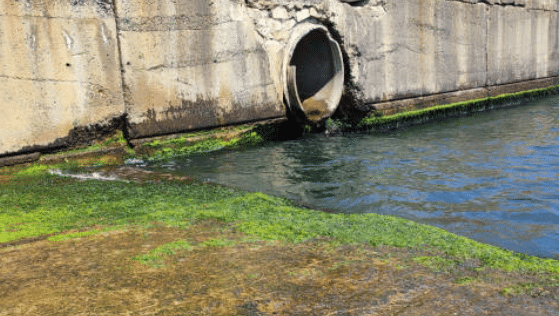Introduction
In today’s environmentally conscious world, industries face increasing pressure and scrutiny regarding their wastewater discharge. Strict environmental regulations are no longer optional guidelines but mandatory requirements enforced by pollution control boards. For businesses generating industrial effluent, failing to comply can lead to severe penalties, operational disruptions, and significant reputational damage. This is where Effluent Treatment Plants (ETPs) become absolutely essential. An effective ETP isn’t just a piece of equipment; it’s a critical component of responsible industrial operations, ensuring both environmental protection and regulatory compliance.
Effluent Treatment Plants play a crucial role in the treatment and management of wastewater generated by industries. By effectively processing effluent, these plants ensure that businesses comply with environmental regulations.
The Growing Challenge: Navigating Complex Wastewater Regulations
Understanding the Importance of Effluent Treatment Plants
Industries across various sectors – from manufacturing and chemicals to textiles and food processing – generate wastewater containing diverse pollutants. Environmental authorities mandate specific wastewater discharge limits for parameters like:
- Biochemical Oxygen Demand (BOD)
- Chemical Oxygen Demand (COD)
- Total Suspended Solids (TSS)
- pH levels
- Heavy metals
- Oils and greases
- Specific industry-related contaminants

Meeting these stringent, often evolving, standards presents significant challenges:
- Complexity: Regulations can vary based on industry type, location, and the receiving water body (surface water, sewer, or land application). Keeping track and ensuring adherence requires expertise.
- Penalties: Non-compliance can result in hefty fines, legal action, and even forced shutdowns, severely impacting profitability and business continuity.
- Reputational Risk: Environmental negligence damages brand image and erodes trust among customers, investors, and the community.
- Operational Impact: Improperly treated effluent can harm downstream processes if water is reused, or cause environmental harm if discharged.
The Solution: How Effluent Treatment Plants Ensure Compliance
An Effluent Treatment Plant (ETP) is a system designed specifically to treat industrial wastewater, removing pollutants and contaminants to meet legally permissible discharge standards. A well-designed ETP utilizes a combination of physical, chemical, and biological processes tailored to the specific characteristics of the effluent.
Key functions of an ETP in ensuring environmental compliance include:
- Removing Solids: Screens, grit chambers, and clarifiers remove suspended and settled solids.
- Reducing Organic Load: Biological processes (like activated sludge or MBBR) break down organic matter, lowering BOD and COD levels.
- Neutralizing pH: Adjusting acidity or alkalinity to meet safe discharge ranges.
- Eliminating Specific Contaminants: Advanced processes like chemical precipitation, adsorption, or membrane filtration target heavy metals, dyes, toxins, etc.
- Disinfection: Killing harmful pathogens before discharge or reuse.
By effectively treating wastewater before it leaves the facility, ETPs provide the necessary mechanism to consistently meet pollution control requirements.
Beyond Compliance: Added Benefits of an Effective ETP
While meeting regulations is the primary driver, investing in a high-quality ETP offers further advantages:
- Avoiding Penalties: Directly saves costs associated with fines and legal fees.
- Water Reuse & Resource Recovery: Treated effluent can often be reused within the plant (e.g., for cooling, cleaning, irrigation), reducing freshwater consumption and costs. Valuable by-products might also be recoverable in some cases.
- Enhanced Brand Reputation: Demonstrates commitment to sustainable wastewater management and corporate social responsibility (CSR).
- Environmental Protection: Prevents contamination of local water bodies, protecting ecosystems and public health.
- Operational Stability: Ensures uninterrupted operations by avoiding compliance-related shutdowns.
Why Customization Matters for Your ETP Solution
Industrial effluents vary significantly. A one-size-fits-all ETP rarely provides optimal results or cost-efficiency. A customized ETP solution, designed based on factors like:
- Influent characteristics (pollutant types and concentrations)
- Flow rates (average and peak)
- Required outlet quality (based on regulations and reuse potential)
- Available space and budget
- Operational ease
ensures higher treatment efficiency, lower operational costs (energy and chemicals), and reliable compliance assurance.
Additionally, Effluent Treatment Plants help in recycling water, thereby promoting resource conservation.
Partnering for Reliable Compliance: Hydropedia’s ETP Expertise
Navigating the complexities of wastewater treatment and environmental regulations requires expertise. Hydropedia Pvt. Ltd. specializes in designing, installing, and maintaining state-of-the-art Effluent Treatment Plants (ETPs) tailored to diverse industrial needs.
Since 2018, we’ve helped numerous clients across India achieve consistent environmental compliance through:
- Customized Design: Tailoring ETPs to specific effluent challenges.
- Advanced Technology: Utilizing efficient and reliable treatment processes.
- Focus on Sustainability: Designing systems that promote water reuse and minimize waste.
- Comprehensive Support: Offering end-to-end services from initial consultation to ongoing maintenance.
We understand the critical importance of meeting environmental regulations and partner with industries to provide effective, reliable, and cost-efficient industrial effluent treatment solutions.
Conclusion
Effluent Treatment Plants are vital for industries to manage wastewater effectively. They not only prevent legal repercussions but also contribute to environmental preservation and resource recovery. Investing in a well-optimized Effluent Treatment Plant is a proactive step towards sustainability.
With the implementation of advanced technologies, Effluent Treatment Plants can effectively eliminate harmful contaminants from wastewater.
Investing in an efficient Effluent Treatment Plant not only aids in compliance but also enhances the overall operational efficiency of industrial processes.
Ensure your facility meets all environmental regulations. Contact Hydropedia Pvt. Ltd. today for a consultation on our expert ETP solutions and take the first step towards guaranteed compliance and sustainable wastewater management.
Given the importance of Effluent Treatment Plants, it’s vital for industries to customize their ETP solutions based on specific wastewater characteristics.
